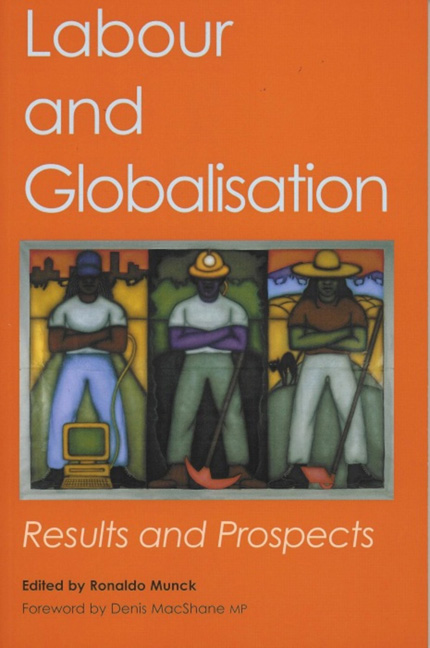Book contents
- Frontmatter
- Contents
- Acknowledgements
- Foreword
- Notes on the Contributors
- List of Abbreviations
- Introduction: Globalisation and Labour Transnationalism
- Part I Global Dimensions
- Part II Spatial Dimensions
- Part III Social Dimensions
- 9 Beyond Unions: Labour and Codes of Conduct
- 10 Globalisation and Child Labour: Protection, Liberation or Anti-Capitalism?
- 11 Globalisation, Trade Unionism and Solidarity: Further Reflections on the Liverpool Dock Lockout
- 12 Globalisation and Trade Union Strategy: Evidence from the International Civil Aviation Industry
- Index
9 - Beyond Unions: Labour and Codes of Conduct
from Part III - Social Dimensions
- Frontmatter
- Contents
- Acknowledgements
- Foreword
- Notes on the Contributors
- List of Abbreviations
- Introduction: Globalisation and Labour Transnationalism
- Part I Global Dimensions
- Part II Spatial Dimensions
- Part III Social Dimensions
- 9 Beyond Unions: Labour and Codes of Conduct
- 10 Globalisation and Child Labour: Protection, Liberation or Anti-Capitalism?
- 11 Globalisation, Trade Unionism and Solidarity: Further Reflections on the Liverpool Dock Lockout
- 12 Globalisation and Trade Union Strategy: Evidence from the International Civil Aviation Industry
- Index
Summary
In the early 1990s international labour issues were considered to be the concern primarily of trade unions. On occasion, solidarity actions in support of workers in specific disputes drew on a wider constituency of support. It was in this context, for example, that the small Manchester-based labour rights group, Women Working Worldwide (WWW), worked with unions and other groups in support of Filipino garments workers locked out by the subsidiary of a UK-based garments multinational (Shaw, 1997). The increasingly footloose nature of many companies increasingly undermined the success of solidarity action, as garments production was easily switched to a site not troubled by organised labour and demands for better working conditions. Unorganised workers, the vast majority in sectors such as the garments industry, have no recourse at all to international support and solidarity actions. Companies simply refused to accept responsibility for working conditions in factories they did not directly own.
Campaigns
Ten years later, the problems of footloose companies, exploitative working conditions and unorganised workers clearly have not diminished – the impact of globalisation has made matters worse. What has changed is the wider context of the work that WWW continues to do in support of women workers internationally. Beyond unions, several international networks of organisations and groups are concerned with international labour issues and workers’ rights and conditions internationally. There are now literally hundreds of groups and many more individuals working in a variety of ways on issues that ten years ago were considered to be the specific province of trade unions. Organised into national and international networks, these groups are based in both Europe and the US. The networks involve a wide range of organisations including consumer groups, women's groups, development agencies and NGOs such as Oxfam, church-based organisations, fair trade shops and organisations and labour rights groups (Ross [ed.], 1997). Originating outside traditional trade union-based international structures, these groups and networks nonetheless have an agenda that is firmly concerned with improving labour conditions internationally. The Europe-wide Clean Clothes Campaign is a typical example and introduces itself as follows:
We are an international network with the goal of improving the working conditions in the garment industry worldwide. The network comprises a wide variety of organisations, such as trade unions, consumer groups, researchers, solidarity groups, women's organisations, church groups, youth movements and worldshops. (http://www.cleanclothes.org/campaign.htm)
- Type
- Chapter
- Information
- Labour and GlobalisationResults and Prospects, pp. 169 - 180Publisher: Liverpool University PressPrint publication year: 2003



